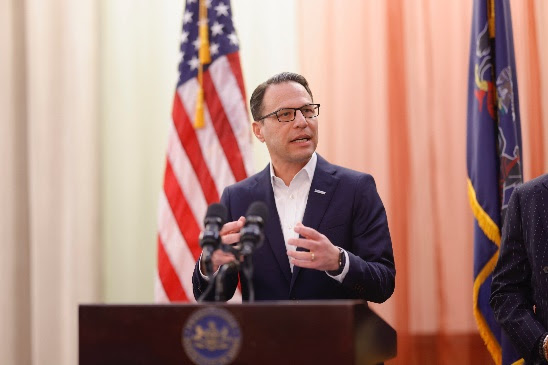Bucks County Man Facing Death Row Retrial as Shapiro Blocks Executions

Many convicted killers sitting on Death Row are understandably worried about their ultimate fate. Condemned prisoners in Pennsylvania, however, likely rest easier knowing that Gov. Josh Shapiro has no intention of signing any death warrants while in office.
That includes any potential death sentence handed down to Alfonso Sanchez, a Bucks County man facing a double-murder trial for the second time since 2008.
Sanchez was first sentenced to death by lethal injection in 2008 for the double killing of Lisa Marie Diaz and Mendez Thomas, Jr. His trial found he had killed the two as part of a drug-fueled dispute over money.
Then-Gov. Tom Corbett, a Republican, signed Sanchez’s execution warrant in 2015. But Bucks County District Attorney Matt Weintraub granted Sanchez a retrial in 2017, finding prosecutors had not provided important DNA evidence at his earlier trial. Specifically, that one of the victims had the skin of Sanchez’s accomplice under her fingernails.
The retrial was set to occur in 2020 but was delayed until this week due to the COVID pandemic.
Shapiro’s office told DVJournal the governor’s position on executions has not changed. The governor said in February he would “not issue any execution warrants during his term” and urged the General Assembly to officially abolish capital punishment in the state.
The Bucks County District Attorney’s office confirmed to DVJournal that it would seek a renewed death sentence for Sanchez. DA spokesman Manuel Gamiz said the governor’s opposition to the death penalty would not change the district attorney’s intent.
“It’s speeding along,” Gamiz said of the trial. “We’re hoping to have a resolution soon.”
In addition to the 2008 conviction, court records also indicate that Sanchez reportedly attempted to arrange the killing of key trial witness Jessica Carmona from prison.
“He tried to finish the job,” Chief Deputy District Attorney Matthew Lannetti said at the retrial on Monday. “He tried to have people kill [a witness] so she couldn’t sit in that witness box and tell you what happened that night in that apartment.”
Joseph McGettigan, a former prosecutor in Delaware County and Philadelphia as well as a former Assistant U.S. Attorney, told DVJournal that “individuals who willfully, intentionally and without justification take another human life under some circumstances, should forfeit their own.”
McGettigan said that as a prosecutor, he led “probably half a dozen cases” where a jury imposed the death penalty, “but because of the various appeals process, none of the persons who I tried and saw sentenced to death have been executed.”
“Although one has died,” he added.
McGettigan argued Shapiro “has never been a prosecutor, although he was attorney general. He’s never been a trial lawyer. He’s never, to my knowledge, had contact with the victims of a horrendous murder.”
“It’s easy for him to espouse these progressive views that the death penalty isn’t warranted,” he said. “But I think the world would be a safer place if some people were executed for the heinous crimes they commit.”
The last prisoner put to death in Pennsylvania was Gary Heidnik, who was given a lethal injection at State Correctional Institution at Rockview. Heidnik shocked the state and the country when investigators discovered he had held captive, raped, and murdered half a dozen women using a pit dug in the basement of his North Philadelphia house.
Heidnik’s crimes partially inspired the Buffalo Bill character in the Thomas Harris novel “The Silence of the Lambs” and its subsequent film adaptation.
Though Pennsylvania is unlikely to resume executions for at least the next four years, one Pennsylvania man, Kaboni Savage, still faces the death penalty for crimes committed in the state.
Savage ordered the firebombing of a rival’s Philadelphia family home in 2004 while in federal custody in the city. The attack killed six people, including four children ranging from 15 months old to 15 years old.
Convicted in 2013, Savage was handed 13 death sentences. He remains incarcerated at ADX Florence, an ultra-maximum security prison in rural Colorado.



